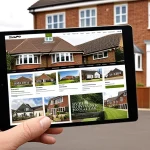Impacts of UK Technology on Everyday Convenience
UK technology has significantly enhanced convenience in daily life through the adoption of smart cities and digital services. Smart city innovations streamline daily tasks by integrating digital platforms into public infrastructure, improving accessibility and responsiveness. For example, contactless payments allow quick and secure transactions in shops and public transport, reducing wait times and friction during purchases.
Digital services also transform public sectors, making government interactions more efficient and user-friendly. Citizens can now access a range of services online— from renewing licenses to submitting tax returns—without the need for physical visits. This shift to online platforms minimizes bureaucracy and accelerates process completion.
Also read : How Can Emerging Technologies in the UK Revolutionize Education?
These technologies collectively improve public services by leveraging digital platforms that adapt to user needs. Smart city initiatives optimize resource management, traffic flow, and energy use, simplifying urban living. Residents benefit from greater connectivity and easier navigation through their environments, underscoring the integral role of UK technology in shaping today’s convenient lifestyle.
Technological Advances in Healthcare
UK health tech is transforming healthcare delivery by integrating digital healthcare tools such as telemedicine and health apps. These innovations increase convenience by allowing patients to consult doctors remotely, reducing travel time and wait periods. For instance, NHS innovation has incorporated virtual consultations, enabling timely advice and treatment from the comfort of home.
In parallel : How Does the Rapid Growth of UK Technology Impact Employment Opportunities?
Electronic health records (EHRs) have revolutionized healthcare efficiency. By digitizing patient information, clinicians can access comprehensive medical histories instantly, avoiding duplication of tests and ensuring informed decisions. This streamlining reduces administrative burdens and improves patient outcomes.
The NHS further exemplifies UK health tech leadership through remote monitoring and AI diagnostics. Remote monitoring devices collect real-time data on chronic conditions, allowing proactive management and reducing hospital admissions. AI diagnostics enhance accuracy in detecting diseases from imaging and test results, supporting clinicians with faster, data-driven insights.
Together, these digital healthcare advancements augment patient care quality, accessibility, and efficiency. The UK health tech landscape clearly demonstrates how innovative tools and NHS innovation drive a more convenient, responsive healthcare system tailored to patient needs.
Evolution of Transport and Urban Mobility
UK transport technology is rapidly advancing, reshaping urban mobility with a focus on smart mobility and sustainable solutions. Electric vehicles (EVs) supported by an expanding charging infrastructure increase convenience by enabling cleaner, quieter travel. Autonomous vehicle trials in cities like London demonstrate how driverless technology could reduce traffic congestion and improve safety.
Real-time public transit data, accessible via smartphones and digital displays, empowers commuters with timely information. This reduces uncertainty and waiting times and helps passengers make efficient route choices. Apps integrating this data enhance convenience by coordinating transfers across buses, trains, and underground services.
Bicycle and e-scooter sharing schemes have grown in popularity across major UK cities. These initiatives provide flexible, affordable, and eco-friendly last-mile options, connecting users seamlessly to public transport hubs. Such systems contribute to reduced car dependence and greater urban accessibility.
Together, these innovations in UK transport technology illustrate a shift towards more dynamic, integrated, and sustainable mobility. The integration of smart mobility solutions ensures smoother journeys, supports environmental goals, and aligns with modern lifestyles demanding both convenience and ecological responsibility.
Enhancements in Communication and Connectivity
UK digital infrastructure is a cornerstone of everyday convenience, driving widespread access to high-speed internet and accelerating 5G adoption. These advances enable seamless remote work, online education, and social interactions, minimizing disruptions caused by geographical barriers. For example, faster broadband and 5G networks support video calls and cloud services without lag, offering fluid communication experiences.
The rollout of 5G enhances not just speed but network reliability across urban and rural areas. In less populated regions, improved connectivity helps close the digital divide, fostering equal access to digital services. This progress reflects UK technology’s role in creating an inclusive digital environment, enabling residents to stay connected anytime, anywhere.
Additionally, 5G facilitates the deployment of smart city features, such as IoT-based public utilities and real-time monitoring systems, which further contribute to convenience in urban life. The synergy between digital infrastructure and smart innovations empowers citizens with efficient, responsive services that simplify everyday tasks.
Overall, UK digital infrastructure bolsters convenience by making communication faster, more accessible, and robust. These technologies underpin the nation’s digital transformation and improve quality of life through enhanced connectivity and practical digital solutions.
Promoting Sustainable Living and Environmental Benefits
UK green technology is driving significant progress in energy efficiency and sustainability across homes and cities. Smart energy grids optimize electricity distribution, balancing supply and demand in real time. This reduces waste and lowers carbon emissions by integrating renewable sources like wind and solar. Home energy management systems empower residents to monitor and control consumption, promoting eco-friendly habits and cost savings.
Beyond energy, tech-driven waste reduction and recycling use sensors and data analytics to improve sorting accuracy and collection routes. These innovations minimize landfill use and boost recycling rates, supporting circular economy principles. For example, sensor-equipped bins can signal when they need emptying, enhancing municipal waste management efficiency.
These sustainable innovations directly contribute to the UK’s ambitious net-zero targets by ensuring smarter resource use and reducing environmental impact. By embedding green technology into urban infrastructures and everyday life, the UK fosters a culture of sustainability that benefits communities and the planet alike. This approach reflects a holistic commitment to eco-conscious living facilitated by UK technology advancements.










